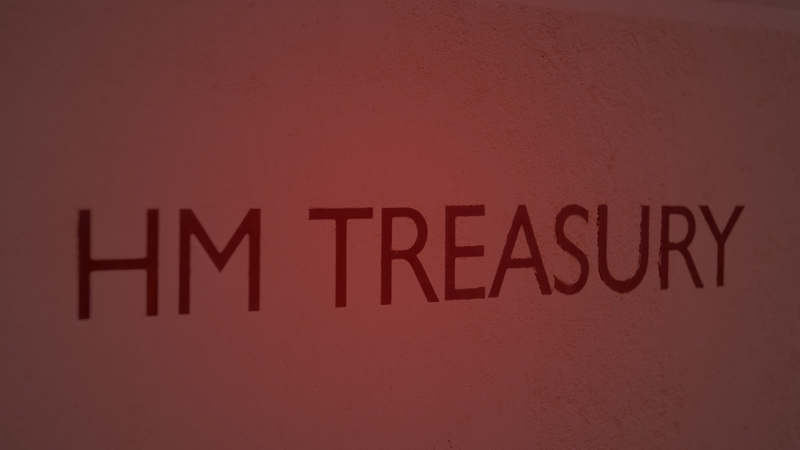Autumn Budget 2024 - The Results

The Autumn 2024 Budget has unveiled substantial changes to Inheritance Tax (IHT) which will significantly impact Estates, pensions and family businesses throughout the UK. We will look at each of these key points in turn.
1.Nil Rate Bands
One of the key changes is the freezing of the nil rate bands until April 2030. This means that there are no planned adjustments to the current thresholds and as it stands, when a person passes away, the first £325,000 of their assets fall into the nil rate band allowance and no IHT is paid on this amount. Anything above this amount is taxed at 40%.
Secondly, if your assets include your family home or main residence, which is being left to a direct descendant, such as your children, then a further £175,000 residence nil rate band can be added to your standard nil rate band, meaning that you may have up to £500,000 worth of assets which would not be liable to any IHT, upon your death.
There are some issues to be considered with the freezing of these nil rate bands. Firstly, the value of assets which can be passed on, without attracting a IHT bill, will not increase with the level of inflation or rising property values. This ultimately will result in more Estates being valued above the thresholds and therefore being subject to an IHT liability.
2. Pension Funds
As from April 2027, unused pension funds and death benefits will be potentially liable to IHT as they will now be included within the Estate for IHT purposes. As it stands, the majority of pension funds and death benefits fall outside of ones Estate and are usually not considered for IHT purposes; this obviously is a substantial change to the current rules.
The inclusion of pensions and death benefits in the Estate value, will increase the overall value of many Estates and may result in Estates paying 40% IHT on the amount above the nil rate band. As a result, each year, this change is expected to impact around 8% of estates, accumulating an estimated £1.5bn of IHT receipts by 2029-2030.
The Government are still in the process of consulting on this area and are discussing the process as to how this will be calculated and who will be responsible to pay it.
It is a possibility that the pension Trustees will have the obligation to pay the IHT bill, which could lead to additional work, costs and delays.
The Government are to provide further details on this, after their discussions have come to an end in January 2025.
3. Agricultural Property Relief and Business Property Relief
The Government have also set limits for Agricultural Property Relief (APR) and Business Property Relief (BRP) which may impact many family run businesses and farms who are wanting to pass down their business and business assets to the next generation, whether this be during their lifetime or upon their death.
APR currently provides that some agricultural property can be passed on free of IHT. This property includes land or pasture which is used to grow crops, as well as farm buildings and land used to rear animals.
Secondly, BPR currently allows for the exemption of certain business assets from IHT. As it stands, these reliefs can reduce the value of these assets, such as business assets, or shares in qualifying companies, by either 50% or 100% for the purposes of calculating IHT.
Following the Budget, the Government announced that APR and BPR will be subject to change from 6 April 2026. The current relief of 100% will continue and apply to the first £1m of combined agricultural and business property, subsequently decreasing to 50% thereafter.
Additionally, where there are assets which are transferred during a person(s) lifetime on or after 30 October 2024 and where the deceased passes away on or after 6 April 2026, these allowances will apply.
These changes could have a significant effect on the financial health of such businesses and could result in many family run businesses having to be liquidated to cover the cost of any IHT liability.
4. Reduced Relief on AIM and unlisted shares
As it stands, usually shares which are held on the Alternative Investment Market (the AIM Exchange) will qualify for business relief, which means that they can be inherited without the worry of them attracting IHT. However, this is conditional on them being held for at least two years prior to death.
The Budget saw that this relief on the shares will be reduced from 100% to 50%, for shares which are passed on from April 2026.
As a result, this may affect those who have invested directly in a company or through a share portfolio and it is estimated that this will affect 0.3% of Estates each year.
5. Definition of ‘Residence’ for IHT purposes
Currently, a person’s ‘domicile’ determines the level of IHT to be paid from their Estate. From April 2025, the definition of domicile for IHT purposes will change to a definition of ‘residence’ meaning that ‘long-term residents’ will be subject to IHT on assets held all around the world and not only assets held within the UK.
A person will be considered a long-term resident of the UK where an individual has been a UK resident for at least 10 of the last 20 tax years, prior to the year of death. Additionally, where a deceased individual is under 20 years old, they will be considered a long-term resident if they have been a UK resident for at least 50% of tax years throughout their lifetime.
This change may affect people who have assets abroad, particularly those who use offshore trusts and accounts to shelter their assets from any UK IHT liability.
Contact Us
Please contact our Private Client team, who will be more than happy to assist you with your Estate planning options on 0330 300 1103 or 01924 868933.

More Information
To see how Jordans Solicitors can help you, call 0330 300 1103 or see below for more information.